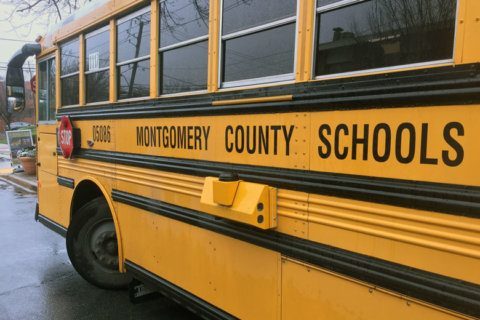The Montgomery County Council in Maryland held a public hearing Tuesday and heard testimony related to a plan to study the possibility of extending Metro’s Red Line for eight additional miles from the Shady Grove station to Germantown.
Several speakers told the council that they believed it was a waste of time.
“The extension of Metro, I can tell you, cannot happen,” argued Bob Eisenger, president of the High Road Foundation, which advocates for transportation alternatives in Montgomery County.
The council is considering recommendations from county planners who said that a Red Line extension should be prioritized over enhancements on MARC commuter rail service.
“Staff compared the potential and costs of a Red Line extension versus other options serving various markets and geographies,” county planners said in their recommendations, noting that they “found that the Red Line extension outperformed the other options.”
Clarksburg resident William Roberts told the council that he disagreed with those findings, saying that the Brunswick Line on MARC should have service added to it instead.
“While I think that the inclusion of the Red Line expansion is ambitious, I do agree with other folks that it is a huge missed opportunity not to include the expansion of MARC’s Brunswick Line,” Roberts said.
Currently, the line only runs one-way during rush hour periods, going toward D.C. in the morning and away from it in the afternoon and evening hours.
“We do need all-day, two-way MARC Brunswick Line service,” Roberts said. “It’s a valuable project for our community and our region.”
Marilyn Balcombe, president of the Gaithersburg Germantown Chamber of Commerce, agreed with Roberts.
“The MARC Brunswick Line should be a priority in this corridor,” Balcombe said.
Although Balcome noted that her group did “support future study of this project,” referring to the possibility of extending Metro’s Red Line.
Other plans the council is considering include the implementation of Bus Rapid Transit systems for Rockville Pike and Veirs Mill Road and the implementation of “corridor connectors,” which are dedicated bus lanes along and across the I-270 corridor that would work in conjunction with the rapid transit systems.
“The recommended network allows buses to efficiently divert off the highway to serve points of local demand,” county planners said.








